"Lighting up" difficult lands
(Baonghean) - Persistently bringing knowledge and enthusiasm to help people build a new life in the resettlement area, the Party members of Thanh Binh village Party Cell (Thanh Son commune, Thanh Chuong district) are joining hands to kindle the fire of warmth and happiness in every home in this difficult land.
Tea tree and the journey of "awakening the earth"
The Khmu people have always lived in the forest, they go to the forest to hunt deer, go to the forest to pick bamboo shoots, and work on the fields. However, everything has changed for the people of Thanh Binh village, a Khmu village in Tuong Duong district when they moved to a new land - Thanh Son resettlement commune (Thanh Chuong).
In the new countryside, people have learned to go to the forest to plant acacia and tea. Then, when the hills are covered with green, they go down to the valley to sow rice, set up barns and set up camps. Day by day, life changes.
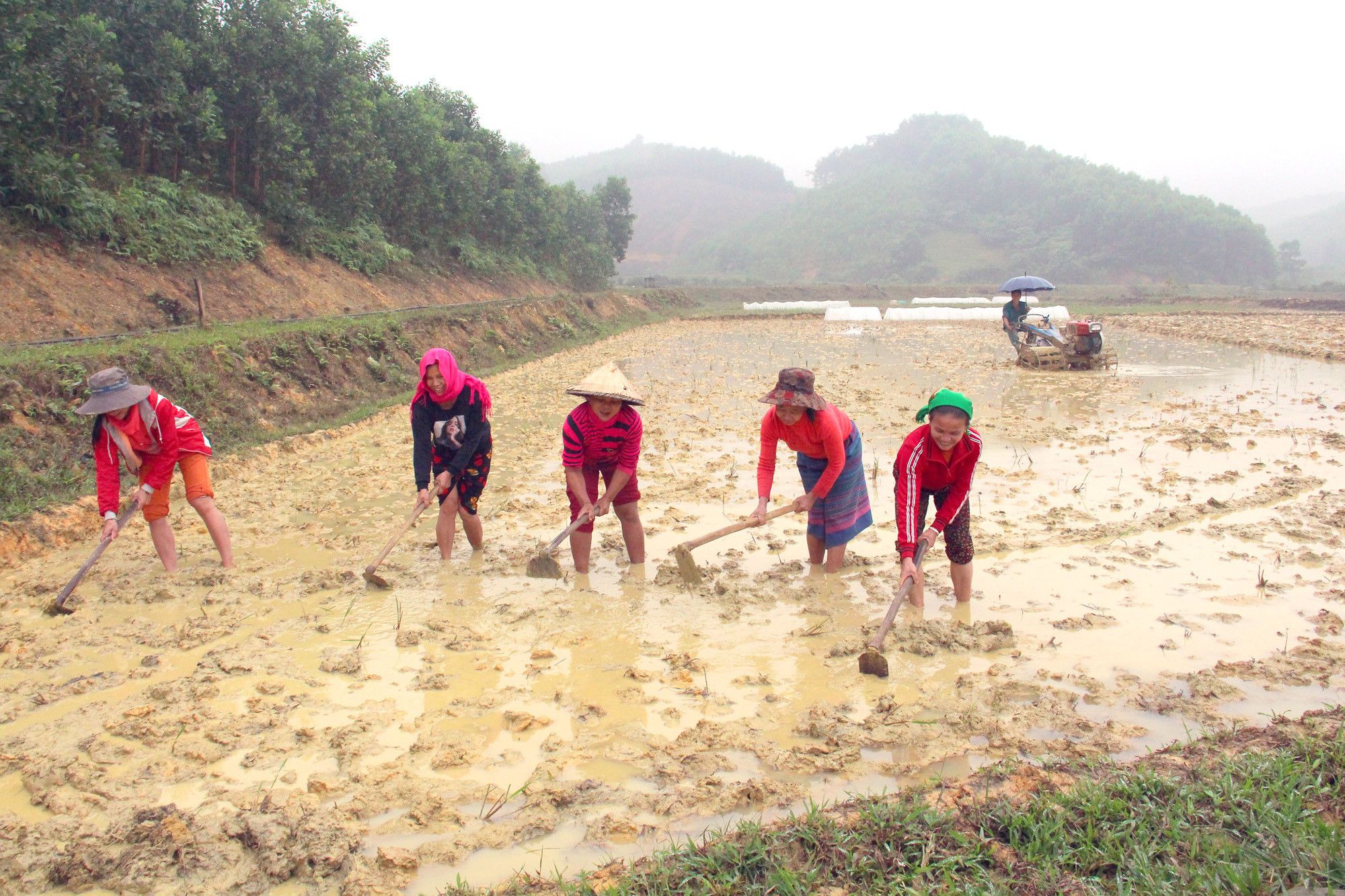 |
| The Khmu people of Thanh Binh village reclaimed Khe Cam land for wet rice cultivation. Photo: Thanh Quynh |
Recalling the first time he left his old hometown of Tuong Duong to move to a new place, Mr. Lu Xuan Bich - Secretary of Thanh Binh village Party Cell said, Thanh Binh is one of the latest resettlement villages of Thanh Son when people just moved here in 2012.
In the first days of moving to the new land, the land for production was limited, and the people were not yet familiar with the new environment, so many families intended to return to their old village. Understanding that if they only talk without doing, the people will not listen and will not be convinced, Mr. Bich and 12 party members in the Party Cell joined forces to overcome difficulties, stay on the land to make a living for the people to follow.
If we only talk without doing, people will not listen or be convinced, so the Party members in the Party Cell joined forces to overcome difficulties and stick to the land to make a living for people to follow.
Two months after settling down, Mr. Bich spent all his compensation money to invest in improving the land in Khe Cam hill to grow tea. He and his wife could not keep up with the work, so he had to hire people to help him dig the land, weed, and clear weeds on an area of nearly 1 hectare. The family was even more motivated after learning that the State would support tea seeds for resettled people to reclaim land for economic purposes.
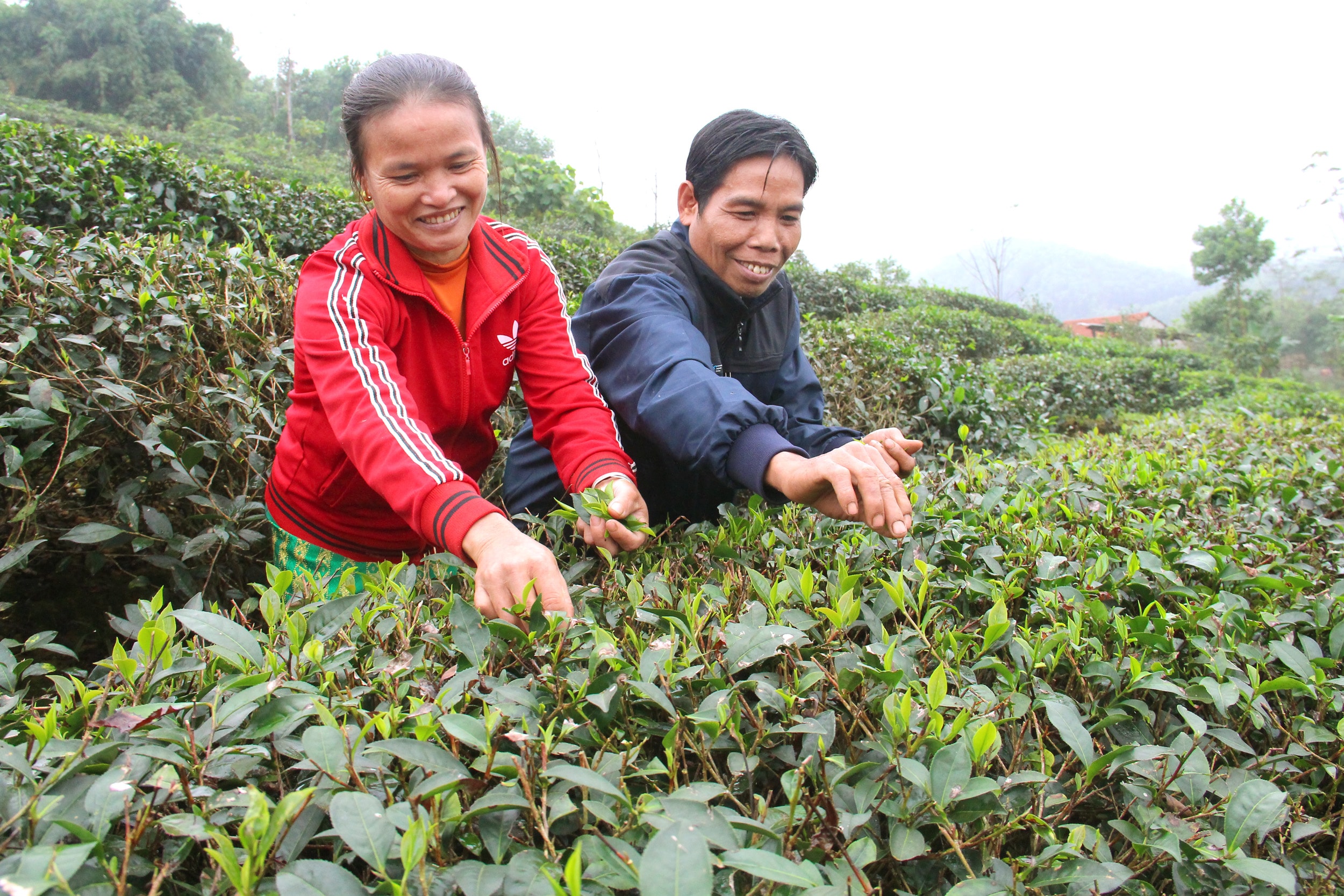 |
| Mr. Lu Xuan Bich and his wife - Secretary of Thanh Binh village Party Cell - are the pioneers in growing tea after resettlement. Photo: Thanh Quynh |
Then the land did not fail the people, the tea trees took root, and water was also brought from Khe Cam to turn the once barren land into fertile, lush land. After Mr. Bich's success, the people in Thanh Binh village took it as an example to stick to the land to make a living.
Some households such as Moong Cong Cuong, Quat Van Xuan... have expanded the tea cultivation area to 1.5 hectares. Now the total tea area of the village has reached more than 10 hectares with 36 households participating in cultivation. Of which, nearly 7.5 hectares are harvested, bringing in dozens of tons of finished products each year. Thanks to the tea growing well, traders come to the village to buy it as soon as it is picked.
Contributing significantly to that success is the enthusiasm and dynamism of the Party Cell Secretary, who not only sets an example but also closely guides the people in every step.
The "talk and do" nuclei
Tea trees are not the only miracle of this land, there are many stories that until today are still told by the elders of Thanh Binh village to their children and grandchildren, as a pride of the days of reclaiming this arduous land. Leading us through the square, straight fields that are being actively plowed by the people to get ready for the upcoming spring crop, Mr. Hung Ngoc Que - Deputy Secretary of the Party Cell, Head of Thanh Binh village happily said: "If in the past, people still had the mentality of waiting and relying on the subsidized rice of the project and neglected production, now many households have rice reserves so they no longer have to worry about not having enough to eat when the support period ends".
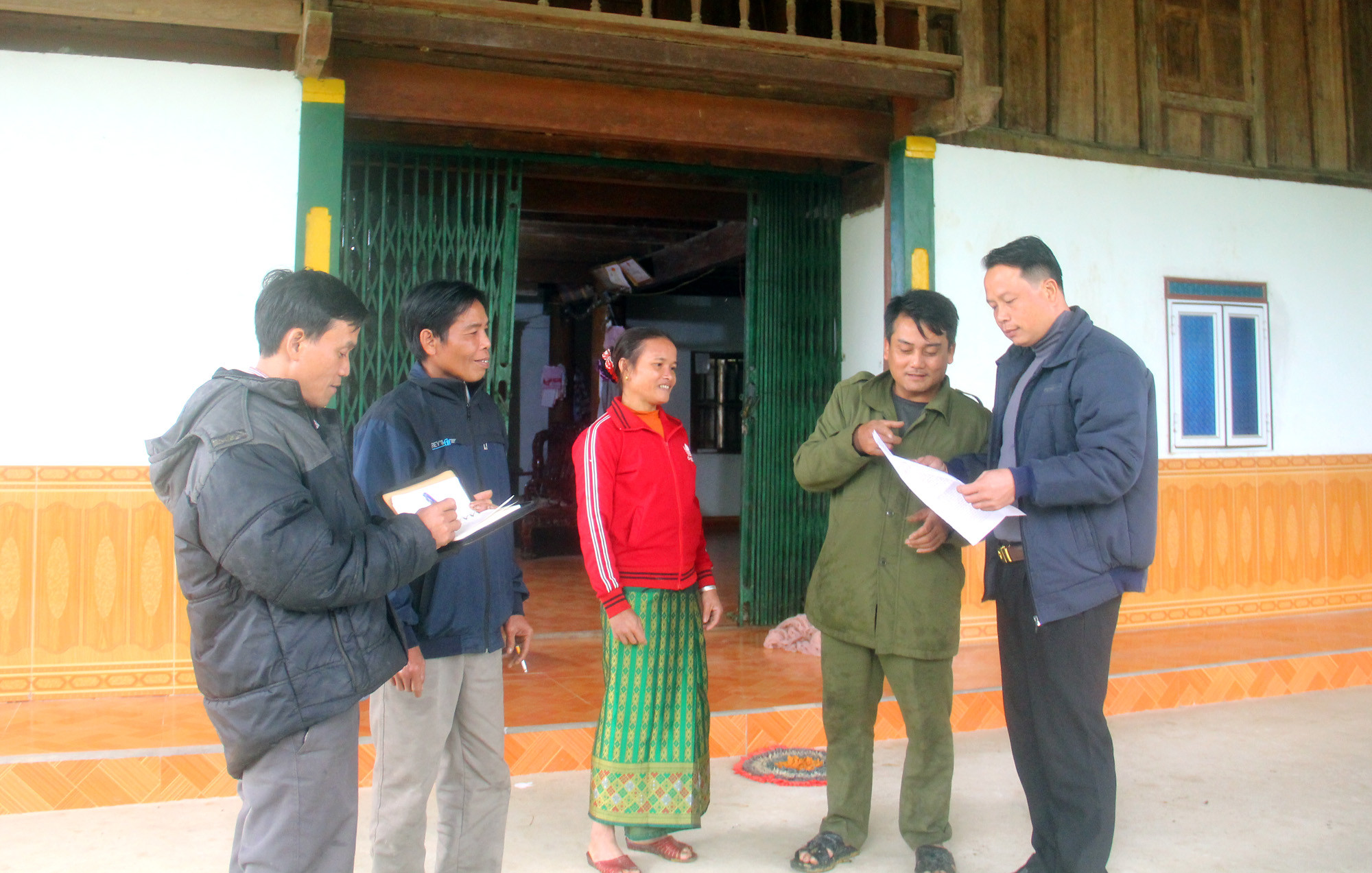 |
| Mr. Lu Xuan Bich and Hung Ngoc Que (left cover) during a policy dissemination session for villagers. Photo: Thanh Quynh |
Stopping in front of his family's 3 acres of fertile rice fields, Mr. Que did not forget the difficult early days of accompanying the villagers to improve the land, bring water to reclaim land to grow rice, even though his hands, which were only used to holding straw and awls to sow rice, now had to hold a hoe to dig the soil and use his hands to plant rice, which was really strange. Then, through technical training classes, the initial confusion passed. 3 acres of rice fields were full of flowers, bringing in nearly 600 kg of rice each crop, so Mr. Que's family no longer had to go hungry during the lean season.
If before, people only waited and relied on subsidized rice, now many households have rice reserves so they no longer have to worry about hunger during lean seasons.
With words and actions, he continued to accompany the Party cell to mobilize people to reclaim more land so that they could work together, overcome difficulties and stick to the land to get rich. Thanks to that, nearly 6 hectares of wasteland along Khe Cam of the village were embanked, water was brought in to improve the soil, and new varieties were put into production according to the trained process.
People have seen with their own eyes that growing wet rice is less difficult than growing upland rice, and the productivity and efficiency are much higher. So no one thinks of leaving the resettlement land to return to their old village.
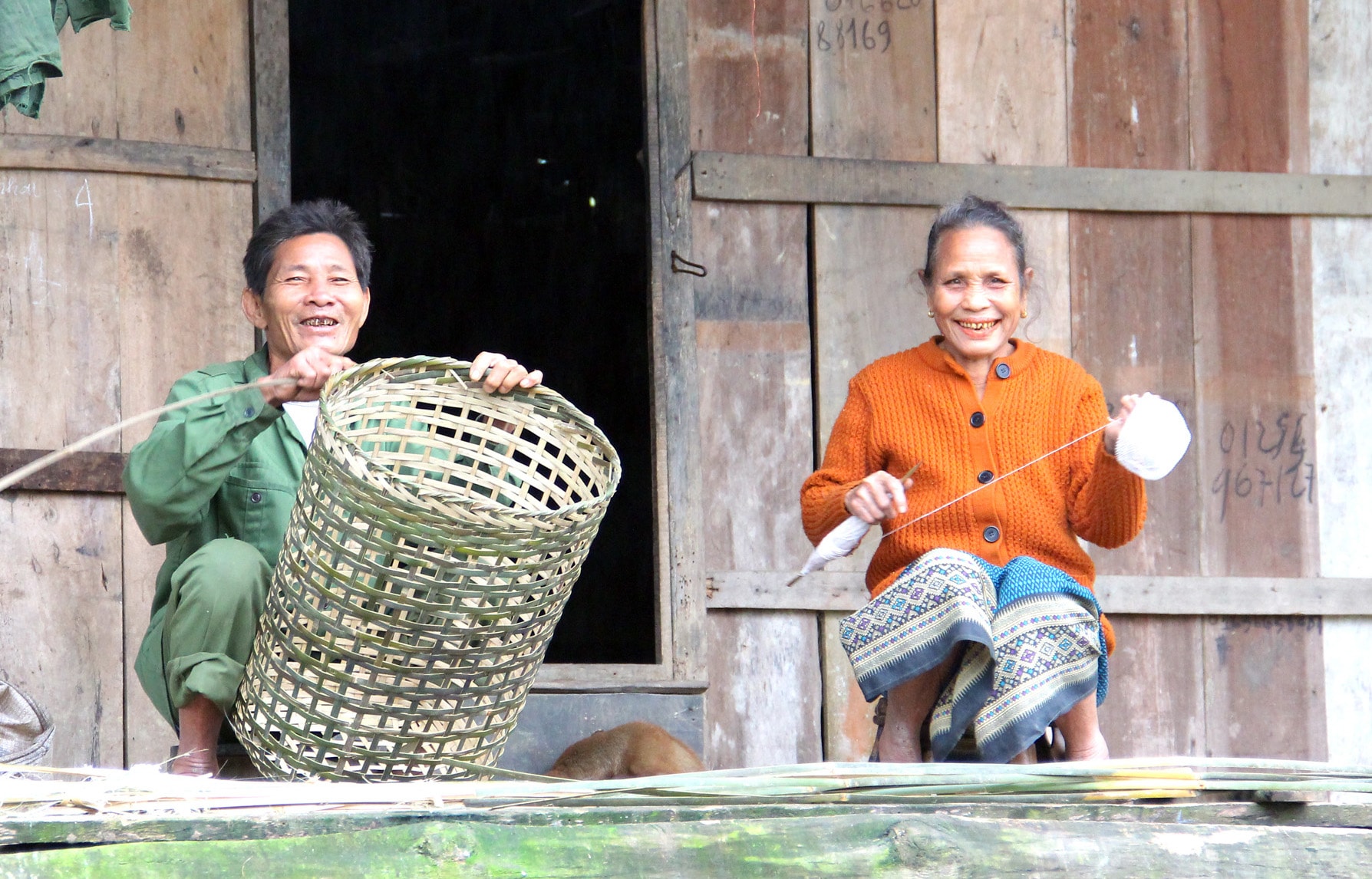 |
| Life has revived in Thanh Binh village. Photo: Thanh Quynh |
In addition to growing acacia and rice, Thanh Binh villagers also make reasonable use of the State's support programs to develop nearly 42 hectares of acacia, 4 hectares of cassava and many livestock farms. Thanks to stable production, the poverty rate in the village has decreased significantly. If in 2010 when people started to move to settle down, the poverty rate in the village was 100%, now it is only over 60%.
The average income per capita is approximately 9-10 million VND/year. Although this is a modest achievement, it has initially created a driving force for people to strive to build a life in the new land.
Saying goodbye to Thanh Binh, Mr. Lo Van Nguyen - Deputy Secretary of Thanh Son Commune Party Committee said: "Being a difficult land with dangerous terrain, Thanh Binh used to be a village that faced many challenges when mobilizing people to leave their hometowns to live here. But then, thanks to the resilient and persistent "red seeds" who took the lead in reclaiming the barren land, they created a wind of innovation that changed the thinking and habits of the people in doing business. From here, the appearance of Thanh Binh has had many positive and sustainable changes."
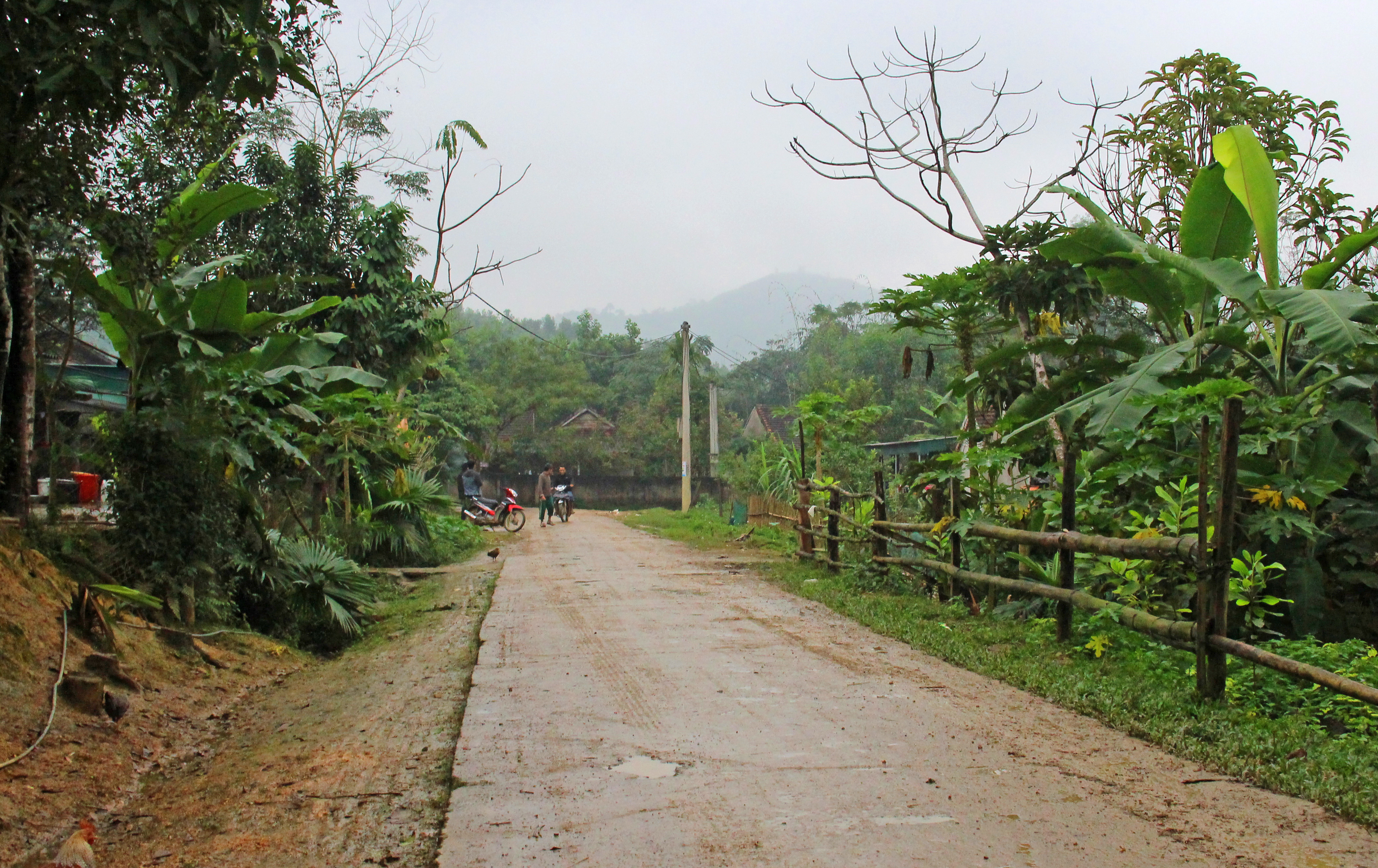 |
| Concrete road to Thanh Binh village. Photo: Thanh Quynh |

